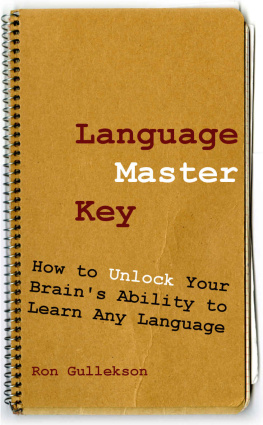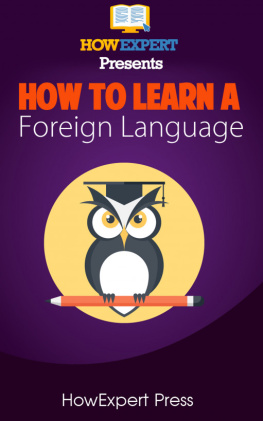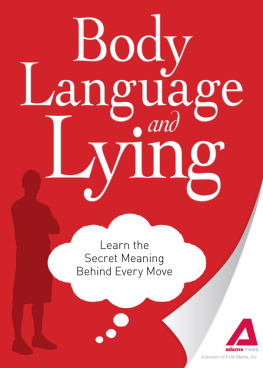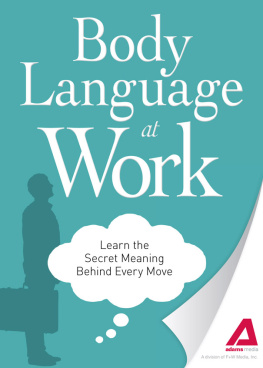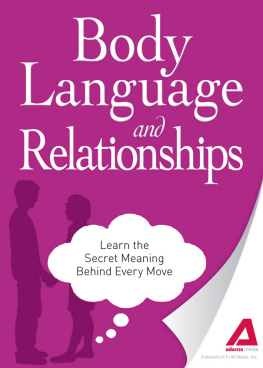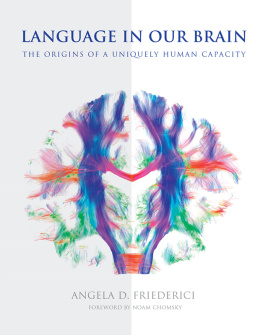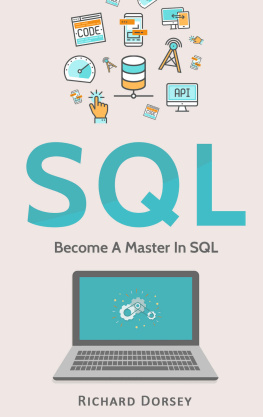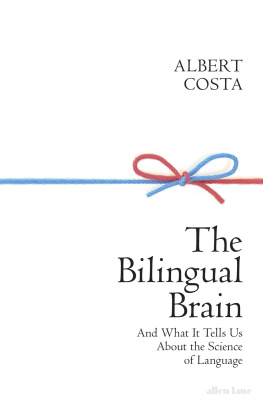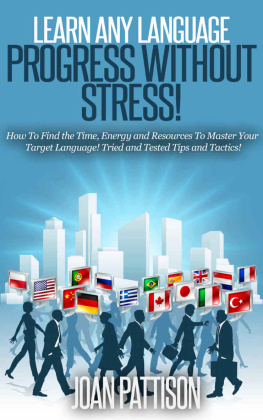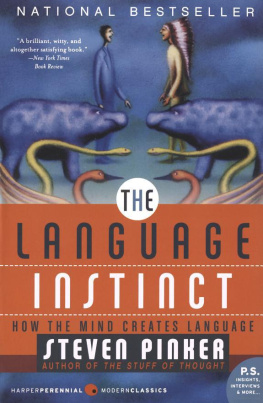Ron Gullekson - Language Master Key: How to Unlock Your Brain’s Ability to Learn Any Language
Here you can read online Ron Gullekson - Language Master Key: How to Unlock Your Brain’s Ability to Learn Any Language full text of the book (entire story) in english for free. Download pdf and epub, get meaning, cover and reviews about this ebook. year: 2014, publisher: Cypress Dome Publishing, genre: Home and family. Description of the work, (preface) as well as reviews are available. Best literature library LitArk.com created for fans of good reading and offers a wide selection of genres:
Romance novel
Science fiction
Adventure
Detective
Science
History
Home and family
Prose
Art
Politics
Computer
Non-fiction
Religion
Business
Children
Humor
Choose a favorite category and find really read worthwhile books. Enjoy immersion in the world of imagination, feel the emotions of the characters or learn something new for yourself, make an fascinating discovery.
- Book:Language Master Key: How to Unlock Your Brain’s Ability to Learn Any Language
- Author:
- Publisher:Cypress Dome Publishing
- Genre:
- Year:2014
- Rating:4 / 5
- Favourites:Add to favourites
- Your mark:
- 80
- 1
- 2
- 3
- 4
- 5
Language Master Key: How to Unlock Your Brain’s Ability to Learn Any Language: summary, description and annotation
We offer to read an annotation, description, summary or preface (depends on what the author of the book "Language Master Key: How to Unlock Your Brain’s Ability to Learn Any Language" wrote himself). If you haven't found the necessary information about the book — write in the comments, we will try to find it.
Ron Gullekson: author's other books
Who wrote Language Master Key: How to Unlock Your Brain’s Ability to Learn Any Language? Find out the surname, the name of the author of the book and a list of all author's works by series.
Language Master Key: How to Unlock Your Brain’s Ability to Learn Any Language — read online for free the complete book (whole text) full work
Below is the text of the book, divided by pages. System saving the place of the last page read, allows you to conveniently read the book "Language Master Key: How to Unlock Your Brain’s Ability to Learn Any Language" online for free, without having to search again every time where you left off. Put a bookmark, and you can go to the page where you finished reading at any time.
Font size:
Interval:
Bookmark:
Copyright 2013 by Cypress Dome Publishing
All rights reserved. This book or any portion thereof may not be reproduced or used in any manner whatsoever without the express written permission of the publisher except for the use of brief quotations in a book review.
www.languagesurfer.com
If you've bought this book, then I assume you've decided to learn a new language.
Congratulations! Sometimes mustering up the courage to make a lofty goal is the hardest step.
I'll never tell anyone that learning a new language is easy, because it's not. It requires effort and time. But it's not impossible either. People from all over the world, from all walks of life, have done it, and there's no reason to think you can't either.
You should always be skeptical when taking language learning advice, because there's so much bad info out there and unfortunately a few snake oil salesmen. For that reason, I'd like to mention my credentials briefly.
I studied Modern Standard Arabic in the US Navy and worked as a translator both during and after my time in the military, for a total of five years. Recently, I taught myself German and Spanish to varying levels of proficiency, without having taken a class in either language, by using the techniques I discuss in this book. I also have a bachelor's degree in English from the University of North Florida and I've been a technical writer for the last several years.
This book is the result of over a decade of experience working with language. Many language learning books are written by linguiststhat is, language scientists. I'm definitely not a scientist. My advice stems from getting my hands dirty with language and words, as a student, a translator, a professional writer, and a self-studier.
I'm by no means the most talented language learner in the world, or anything even close to that. I'm pretty decent, though, at communicating complex topics. Really, I started writing about languages at my website (www.languagesurfer.com) because I saw people who wanted to learn languages make some pretty big, easy-to-spot mistakes. I wanted to provide them and others like them some no-nonsense, straightforward advice that could actually help. And I wrote this book for those same reasons.
Before we get into the meat of the book, let me give you one last thought: You never have to be perfect in a language to benefit from it. The tagline of my website is "The Art of Imperfect Language" because I don't want people thinking that perfection is the goal. Language learning is not a pass/fail endeavor. You do not need to know your new language flawlessly to make friends, read books, work, study, watch television shows, or travel.
If you enjoy the journey and start getting what you can out of your new language as soon as possible, you'll see some reward for your efforts and stay motivated. And that motivation will snowball into further improvement, until sometime down the line you'll find yourself living the language.
Good luck!
I studied writing and literature in college, but one of my most important lessons about languages wasnt learned in class.
After high school, I joined the Navy, learned Arabic, and worked as an Arabic translator for a couple years. It was tough but rewarding work.
I got out of the military and went to the University of North Florida in Jacksonville to get my English degree. I was 22 and desperately trying to understand works by Dickens, Salinger, and Vonnegut. I was also broke, so I got a job as a writing tutor at the university.
All kinds of people came in to the tutoring center, usually because our building was air conditioned and provided relief from the Florida heat. One group, however, really stood out to me: the deaf students. UNF has a well-respected deaf studies program, which often attracts students who are deaf or hard of hearing.
The deaf students I worked with at the tutoring center were very hard working and intelligent. Yet their papers were sometimes difficult to read. Every now and then I just didnt understand what the students were trying to say, and if I offered a correction, I was often met with resistance, even belligerence. It was like they just couldnt imagine that they could be wrong.
It was a little confusing. They were motivated students. I wanted to help them, and I was frustrated that I wasnt able to. And I still remember one blonde girl who I was tutoring. She started getting snappy at me when I was trying to help her put her sentences together. With her sharp words, I felt my ears burn red with both irritation and embarrassment.
Then one day the tutoring center held a mandatory training session with a counselor from the deaf studies program. She told us that deafness not only hindered a persons ability to listen and speak, but also to read and write. She said that since deaf students couldnt hear language, they didnt really understand viscerally how words fit together. They were essentially doing their best to arrange words according to rules they've been taught, the way a computer programmer puts together code. And the result was language that was, at times, impossible to understand.
One tutor in our training session suggested that any developmental delays in reading and writing might be attributed to the fact that English is a second language to deaf students, with sign language being the first. Yet the counselor insisted that this was not the c aseit was an issue more akin to a learning disability, and if we didn't acknowledge just how difficult reading and writing without hearing was, we were doing the deaf students a disservice by not providing them the instruction they needed.
I'm by no means an expert in learning disabilities or special education, but I trusted (and still do trust) the counselor's words, which I've since learned are backed up by the American Speech-Language Hearing Association (1).
And of course Im not putting down deaf people at all. In fact, Im impressed with all that they do accomplish with spoken language. Im also not suggesting that there arent deaf people who can write well, because I know there are plenty who can. To get to that point, though, they had to overcome much more than the general population has to.
The bottom line with all this? I f you cant hear a language, then you are at a severe disadvantage when youre trying to learn it. This doesnt just affect your ability to listen to or speak a language, as one would expect, but also your ability to read it and write it.
With that new perspective, I was able to try different approaches with the students. When I knew just how much they had to overcome and exactly what their challenge was, I had a better idea of how to tutor them, and I was also able to become more patient.
Thats also when I got my epiphany:
Language is sound. And sound is the key to unlocking our brains ability to learn a language.
When were learning a language, our ability to hear it isnt just helpful. It's vital. I dont believe it's an exaggeration to say that sound is the master key that unlocks a language . Before we can start remembering words and grammatical rules and all that fun stuff, we first have to hear the language's sounds and rhythms.
For years, Ive wondered why some things worked for learning languages, and some didnt. Ive also wondered why some people seemed to succeed, and others not so much. For instance:
Why did two years of Spanish class in high school not allow me to hold even a very basic conversation in Spanish?
When I was going through language school to become a translator, why did some students do well, and others not so much?
When I lived in Germany, why did some of my colleaguesreally smart American engineershave such a hard time learning German in the classroom, while guys who went to bars or had German girlfriends seem to pick it up almost effortlessly?
Next pageFont size:
Interval:
Bookmark:
Similar books «Language Master Key: How to Unlock Your Brain’s Ability to Learn Any Language»
Look at similar books to Language Master Key: How to Unlock Your Brain’s Ability to Learn Any Language. We have selected literature similar in name and meaning in the hope of providing readers with more options to find new, interesting, not yet read works.
Discussion, reviews of the book Language Master Key: How to Unlock Your Brain’s Ability to Learn Any Language and just readers' own opinions. Leave your comments, write what you think about the work, its meaning or the main characters. Specify what exactly you liked and what you didn't like, and why you think so.

